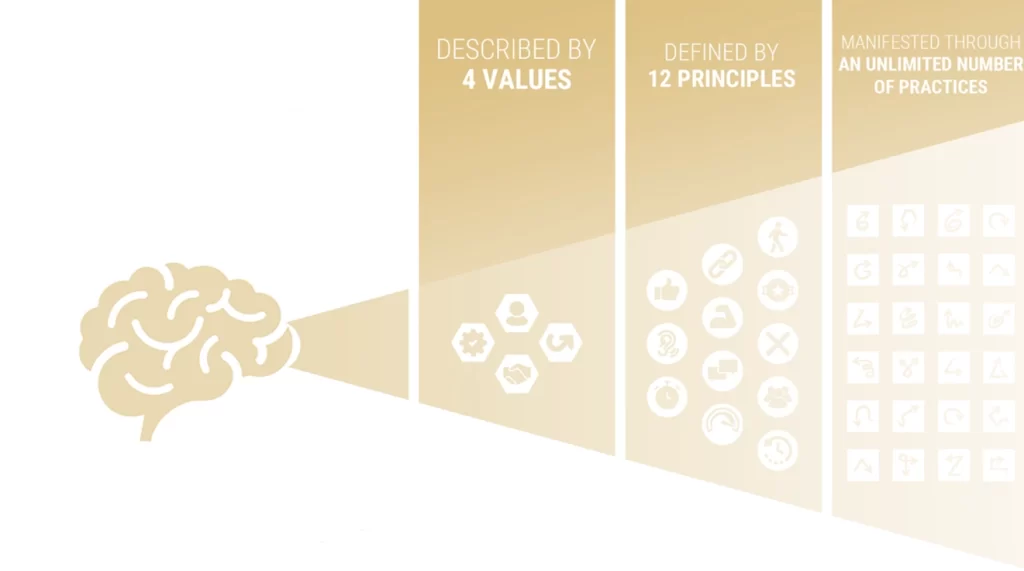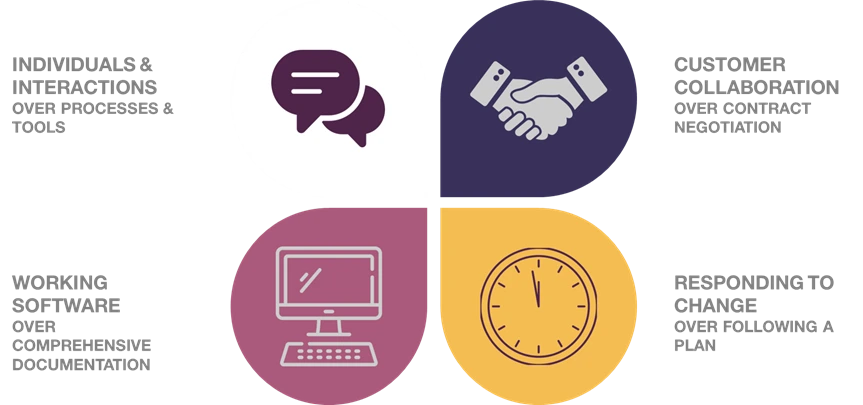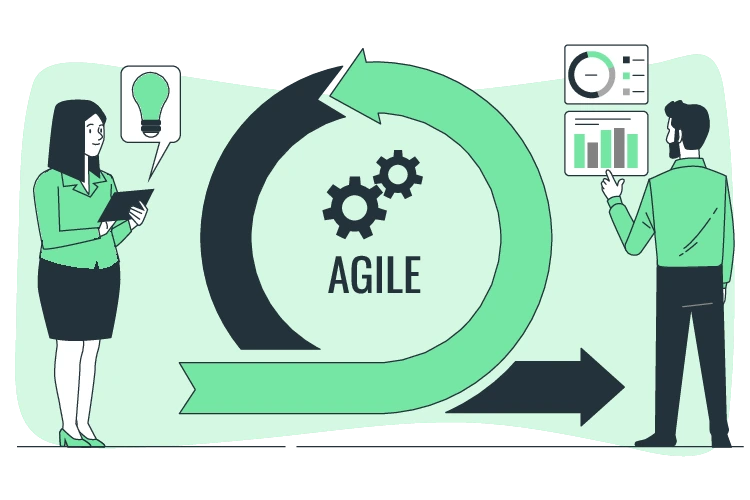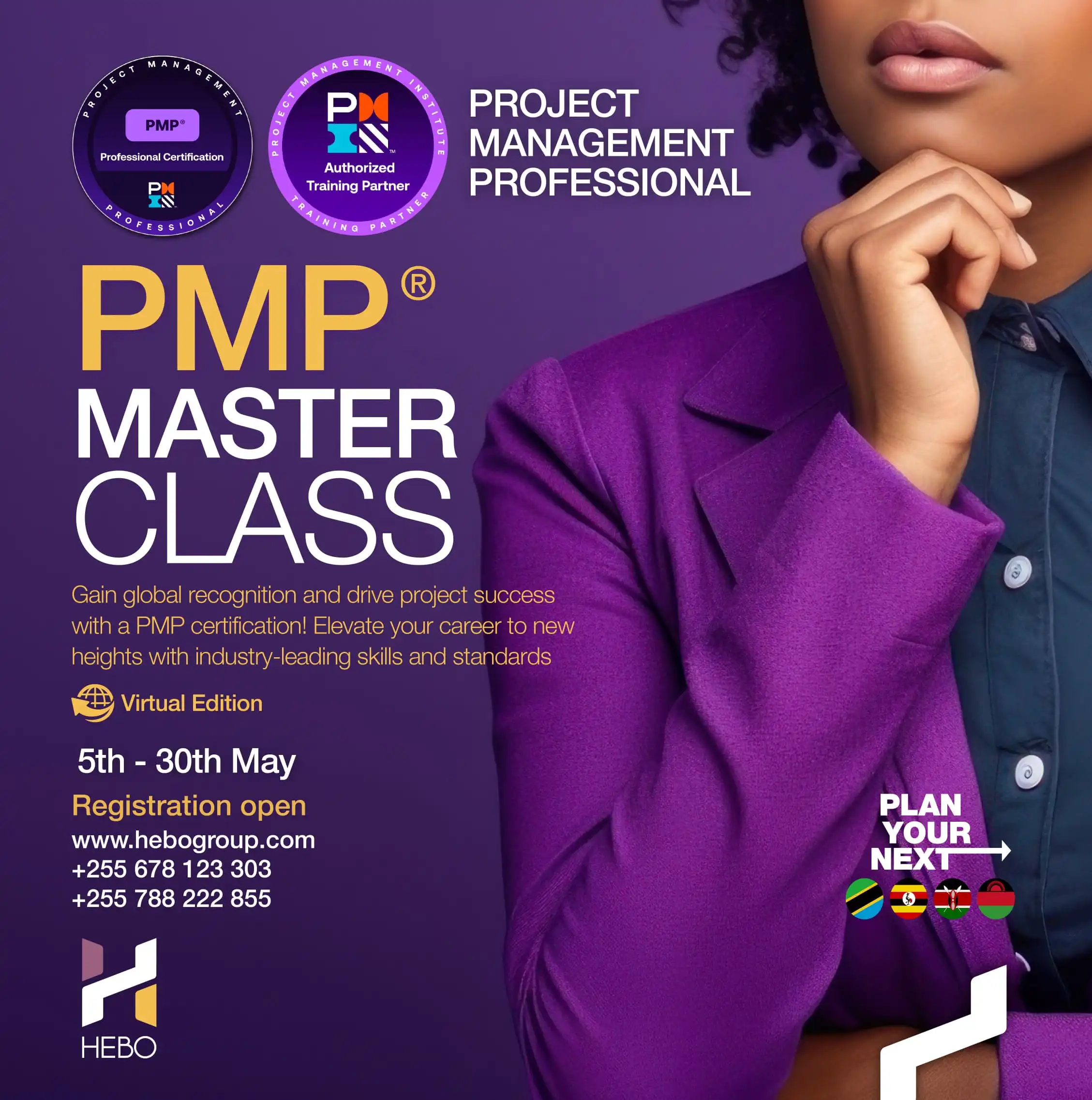“Failure is not fatal, but failure to change might be.”
Agile practices have taken over the technology industry and are rapidly picking up in other non tech industries ranging from manufacturing, health care and other service provision industries.
The world has become fast paced, complex and uncertain and businesses can no longer justify investments and projects of long durations, sequential plans with strict change controls with big bang outcomes.
Continuous, periodic outcomes — through tangible business benefits or improved end-user experience or availability of working solution — are often seen as the better criteria for measuring progress and driving value for businesses.
This essence is what has made Agile popular. The success of Agile practices begins with the adoption of an Agile Mindset.

The Agile mindset
Agile is talked about and used a lot easily attributed to flexibility, but then what having an Agile Mindset means is often not as clear. When dissecting this further, we refer to the Oxford dictionary definition of Mindset as, ‘an established set of attitudes regarded as typical of a particular group’s social or cultural values; the outlook, philosophy, or values of a person, frame of mind, attitude, disposition”.
This understanding helps illustrates the different dimensions of mindset. We refer to an Agile Mindset as a set of attitudes and beliefs that support working in an Agile environment. Think of the Agile mindset as a way of thinking and a way of doing things.
In an Agile webinar hosted by HEBO CONSULT, the Agile enthusiasts dissected the Agile mindset to encompass three elements.
In business, teams that have an Agile mindset focus on Innovating and delivering steadily, more customer value, getting work done in small, self-organizing teams that work together collaboratively with the interactive network. Further, Agile organizations have shown the capacity to adapt quickly in a shifting marketplace.

The Agile values and principles
The four values of the Agile Manifesto are the foundation of an agile mindset. These values continue to serve as common ground for agile practitioners
We have broken down further these 4 Agile values and 12 principles in the video below
How to Develop an Agile Mindset.
She dedicated one whole month to studying fully before going for the PMP Exam. During that time, she undertook the HEBO assessments 3 times a week. Of course, there are days she missed the assessments! But, despite that, she still followed up with us to take those assignments and prepare herself for the PMP exam.
And after the assessment, she’d tackle every question that she got wrong. When her trainers shared the correct answers, she would compare what she thought with the correct answer to check her understanding of the concepts she learned.
Now if you are wondering how and what would be the indicators to look out for, in an Agile mindset, here are four tips to help you and your team focus on building an Agile mindset;
1. Have Respect For All Team Members
In a team setting, respect is earned but also given. View each person as a key contributor to the success of a project and therefor decision maker with valuable inputs. To foster respect, ensure that you have a culture that welcomes different perspectives and diversity of thoughts.
2. Foster Collaboration, With A Focus On Customer
In fostering collaboration, clearly define and agree the roles of the team members. Communicate openly within teams to share information as appropriately. When conflicts arise, identify obstacles and address problems cooperatively as they occur.
The best practice for fostering an Agile mindset is to place group goals above personal ones or recognition.
3. Provide And Seek Feedback
Encourage a safe environment for people to be able to speak up, and not worry about the reaction they will get when they give feedback. When you are giving feedback, check your intentions: Deal with your own emotions before attempting to engage in a dialogue especially when you’re feeling resentful or angry.
When others give you feedback, show appreciation. It is the expression of gratitude or approval of another’s effort. It is an expression of emotion, designed to meet an emotional need.
4. Retrospect Regularly
Have opportunities to look back regularly and reflect on what worked, what did not work and what can be changed. Find ways to Find ways to optimize, problem-solve, reflect, and continuously improve in the process.

Embrace the Agile Mindset
An Agile mindset is a growth mindset that believes in the ability to grow and adapt to the changing dynamics surrounding the current world that we live, and businesses operate in.
Embracing this mindset is a long-term journey of cultivating and pruning, where businesses and teams need to make the necessary shifts culturally, moving away from traditional comfort zones and adopting newer flexible styles of working.
An agile mindset has the potential to make the whole journey more enjoyable and collaborative, significantly improving individual involvement and commitment to the desired outcomes — an intangible result and a dream target state for any enterprise.
Agile teams and the organization as a whole experience incredible results, happy and passionate employees who deliver great value to the customers and make them satisfied with the results.
Start your Agile Journey, here
Training and certifications is a starting point in equipping you with an agile mindset and providing you with the skills, tools, and practices to start doing agile, understanding the framework and mindset to eventually become agile. There are a variety of Agile training programs to leverage, ranging from foundational level with the Agile Foundation course, the Certified Scrum Master (CSM), and the PMI – Agile Certified Practitioner.
If you are looking to break free from your old ways by choosing a way of working that fits your team’s context the Disciplined Agile Scrum Master will empower you and your team to find strategies to improve your processes and strengthen your team with the Disciplined Agile tool kit.
About HEBO Consult
HEBO Consult is project management consulting firm that helps businesses, organizations, and individuals get the right skills, tools, and frameworks to successfully execute projects. Whether through consulting or training, we are committed to bringing you the right strategies, skillset, and mindset to turn your ideas into the best reality possible.
